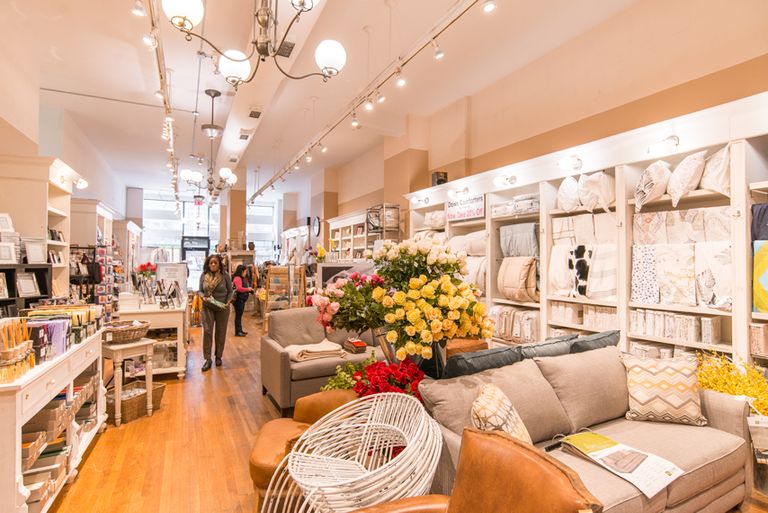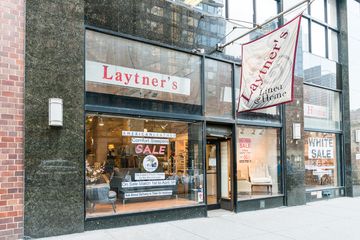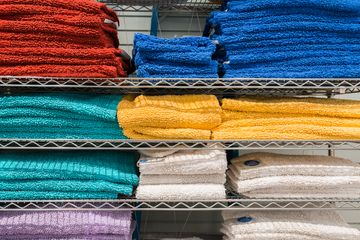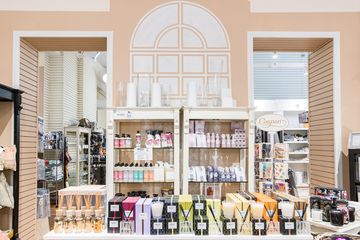
After surviving World War II, Helen and Joseph Laytner moved to New York from Eastern Europe in the 1960s and opened their own shop. They started with a classic candy store on the Upper West Side, which was twelve feet wide by forty feet deep. They sold cigarettes and cigars at the front and had a counter with about eight stools where customers could order egg creams and malted milkshakes towards the back. In speaking with the founders' son and current owner, Alan, who remembers the small shop well, I learned that when he was about five years old, he would spend a lot of his time sitting at that counter, enjoying those milkshakes.
Unfortunately, the Upper West Side in the mid-1960s was a violent place, and the candy store was broken into multiple times, particularly following cigarette deliveries. After the fourth break-in, the family decided to close the candy shop and open a home furnishing store at the same location, under the assumption that linens would not be as tempting to burglars as cigarettes. The opportunity to change specialties grew out of unpleasant circumstances: Helen had contracted tuberculosis and was sent to a hospital in Bedford Hills, New York for a full year. While she was there, she became fast friends with a woman whose son worked in the linen business. Helen did some successful sick-bed networking and secured the contacts and manufacturers needed for Laytner's to become a home goods store.
Alan joined the company full time after receiving his graduate degree from Columbia in 1981. He had helped out at the store on weekends and during school breaks throughout his youth, but he never assumed that he would take over the family business. He got his BA and Masters in theater and planned to become a performer and move to LA. This was around the time, however, of the "co-op revolution" of the Upper West Side, when upscale housing was coming in and small businesses were being driven out. Alan could not bear to be "forced out of the neighborhood" he grew up in, due to rising costs, so he decided to help his parents remodel the store and revitalize the business. Through this process, he turned Laytner's into what it is today. Where before, the business had specialized solely in towels, curtains, and bedding, Alan brought in gift items including picture frames, candles, and soaps.
Since then, Laytner's has expanded and contracted. As Alan put it, "We come and we go." The east side location began in 1989, the same year Alan's daughter was born. The family also opened up in Brooklyn, Queens, and Westchester, which have since closed. As for the remaining locations, Alan credits his "great landlord" with the Laytner's' ability to stay in the same spot, stating that the landlord has worked with them when business has waned. Alan also emphasized that he has amazing employees, some of whom have stuck with him for fifteen years or more.
In general, however, Alan believes that they have survived thanks to their smart, honest business policies. The store's tagline is "Lower prices for people with higher standards." Versions of this motto are used in a lot of Laytner's tongue-in-cheek advertising, including a poster in the window with a dog that says, "Pate Quality Furniture at Chopped Liver Prices." ("We're a bit of a wise guy," Alan laughed, in response to the sign). He then went on to assure me that all of his products are high quality and that he stands by his prices, which are better than what customers would find in other stores. "We wouldn't sell a product that we wouldn't put in our own house."










